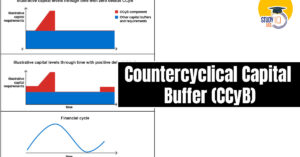Table of Contents
The court directed to first approach the Election Commission of India (ECI) as they were the competent authority “to prevail upon the recognised political parties for creation of an in-house mechanism to deal with complaints of sexual harassment” in a way that is consistent with the provisions of the POSH Act.
ECI’s Role
- Article 324 of the Constitution: Grants the ECI the power of superintendence, direction, and control over elections to the Parliament, State Legislatures, the Office of the President, and the Vice-President.
- Ensuring Compliance with Laws: The ECI has the authority to issue advisories and guidelines to political parties to ensure adherence to laws during elections.
- Example: Instructing parties to comply with the Child Labour (Prohibition and Regulation) Act, 1986 during campaigns.
- Transparency and Accountability: The ECI ensures political parties disclose contributions and audited accounts, aligning with the Right to Information Act, 2005.
- Example: Publishing financial information of parties based on the 2013 Central Information Commission (CIC)
| CIC Ruling 2013 |
In 2013, the Central Information Commission (CIC) issued a landmark ruling declaring that political parties would be considered public authorities under the Right to Information Act, 2005 (RTI Act).
Kerala High Court (2022) Case
|
Existing Rules or Mandates for Protection
- POSH Act, 2013:
- Purpose: Protects women from sexual harassment in workplaces (public and private).
- Requirement: Mandates the formation of an Internal Complaints Committee (ICC) in workplaces.
- Definition of Workplace:
- Public sector bodies
- Private sector companies
- Hospitals, nursing homes, sports venues
- Locations visited by employees during employment
- Internal Disciplinary Mechanisms
- BJP Constitution: Contains provisions for Disciplinary Action Committees at national and state levels.
- Lists breaches of discipline like “lowering the prestige of the Party.”
- Congress Constitution: Allows higher committees to discipline lower ones for offences involving “moral turpitude.”
- BJP Constitution: Contains provisions for Disciplinary Action Committees at national and state levels.
What are the Challenges Associated?
- Ambiguous Authority Over Internal Party Affairs: The ECI’s powers are largely related to elections. Its role in enforcing internal governance within parties, such as creating mechanisms for addressing sexual harassment, is unclear and limited.
- Workplace Definition: The POSH Act applies to workplaces, but political parties lack a conventional employer-employee structure.
- Lack of Enforcement Mechanisms: The ECI can issue advisories, but it does not have punitive powers to enforce compliance with laws like the POSH Act within political parties.
- Resistance from Political Parties: Parties often resist external regulation in internal matters, as seen in their non-compliance with the RTI Act, despite the CIC’s ruling.
- Field Operations of Party Workers: Political parties often employ workers temporarily and in decentralized locations, complicating the identification of a “workplace” and an “employer” for POSH Act enforcement.
Way Forward
- Creation of Internal Complaints Committees (ICCs): Political parties should be encouraged or mandated to establish Internal Complaints Committees (ICCs) for sexual harassment complaints.
- These committees should be structured in accordance with the POSH Act, with women and external members to ensure impartiality.
- Formal Definition of “Workplace”: The definition of “workplace” should be revisited in the context of political parties, taking into account the mobile and varied nature of their operations.
- Clarity on Employer-Employee Relationship: There needs to be a legal framework that clarifies the concept of “employer” within political parties.
- Collaboration with ECI for Implementation: The Election Commission of India (ECI), given its role in overseeing political party functioning, should collaborate with parties to issue guidelines that align their internal processes with the POSH Act.


 Places in News for UPSC 2025 for Prelims...
Places in News for UPSC 2025 for Prelims...
 Countercyclical Capital Buffer (CCyB): P...
Countercyclical Capital Buffer (CCyB): P...
 STELLAR Model: A Game-Changer in Power S...
STELLAR Model: A Game-Changer in Power S...





















